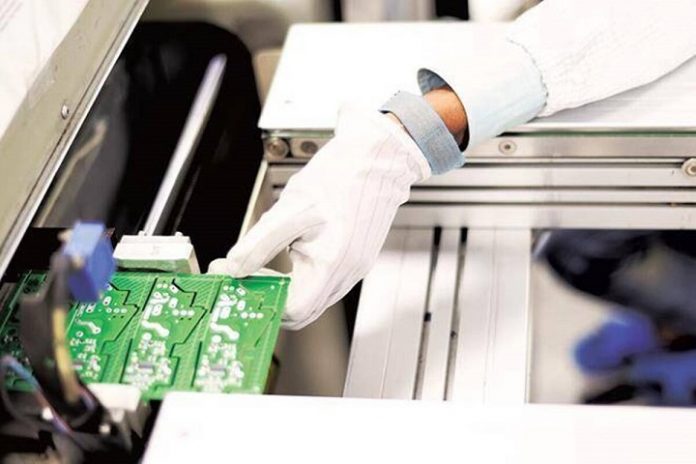The government has started inviting applications for the second round of large-scale electronics manufacturing under the Production-Linked Incentive (PLI) scheme with a focus on some electronic components like motherboards, semiconductor devices, among others.
The application window for the scheme has been opened till March 31 which may be further extended, as per guidelines issued by the Ministry of Electronics and IT (MEITY).
“The second round of the PLI scheme is open for accepting applications. The tenure of the second round of PLI scheme is for four years and the incentive shall be applicable from April 1, 2021,” an official memorandum dated March 11 said.
The first round of the scheme was open for receiving applications till July 31 which attracted participation from global majors like Apple’s contract manufacturers Foxconn, Wistron and Pegatron; Samsung; local players Lava, Optiemus, Dixon etc –committing an investment of over Rs 11,000 crore.
While the first round targeted mobile manufacturing with incentives for 20 companies, the second round has expanded the window for up to 30 eligible companies.
The new guidelines have identified components, discrete semiconductor devices including transistors, diodes etc, passive components including resistors, capacitors, printed circuit board, assembly, ATMP (assembly, testing, marketing and packaging) units etc as target segment for the second round of PLI.
“Incentives under the second round of PLI scheme shall be applicable from April 1, 2021,” the guidelines said.
While companies whose projects were approved in the first round of PLI cannot participate in the second round, however, their group companies having minority or non-controlling interest in the applicant companies will be allowed to apply for incentives, according to the new guidelines.
Commenting on the PLI scheme for large scale electronics manufacturing second round of applications, Mr Omer Basith, Co-founder & CEO, Virtual Forest said:
 “The PLI scheme is the textbook example of successful government enablement of a laggard sector. PLI 1 was aimed at mobile handset assembly, in 2014 50 million handsets were made in India representing 19% of our national demand, in 2020 260 million handsets were made in India representing 96% of national demand.
“The PLI scheme is the textbook example of successful government enablement of a laggard sector. PLI 1 was aimed at mobile handset assembly, in 2014 50 million handsets were made in India representing 19% of our national demand, in 2020 260 million handsets were made in India representing 96% of national demand.
Not only has the PLI scheme helped the industry grow explosively, it has all but eliminated the import of mobile handsets.
The recently announced second round of the PLI scheme will expand the scope of the existing scheme allowing more local and international mobile phone manufactures to participate.
The difference this time is that the scheme is being opened up to component manufacturers, this is the natural progression of the policy, by setting up a thriving component ecosystem in India a larger % of the product value is added on in our country. This further strengthens the ecosystem setting in motion a cycle of local manufacturing, innovation and manufacturing led wealth creation.
The initial beneficiaries of this cycle will be the large corporations investing capacities in line with the PLI scheme. In the medium, to long-term, the ultimate beneficiaries will also include MSME’s, Startups, Indian workers and ultimately the Indian consumers.”

